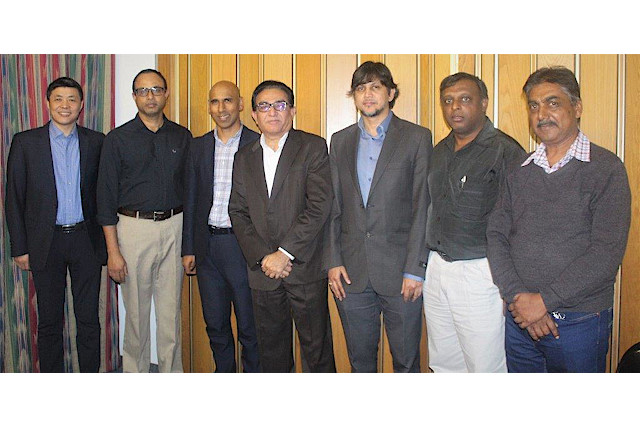Deliberating on world energy consumption and energy sources dominated the discussion at the presentation done by international, leading scientist Prof Ashok Pandey.
He was delivering his presentation on: Biomass to Biofuels: Production of Liquid Biofuels from Agro-Industrial Residues, at the Steve Biko Campus on Thursday, 30 August 2018.
This lecture formed part of his five-day visit to the Durban University of Technology (DUT) with students from the Department of Biotechnology and Food Technology. He was hosted by the Faculty of Applied Sciences, under the helm of Professor Suren Singh-Executive Dean.
Professor Ashok Pandey is currently a distinguished scientist at the Centre for Innovation and Translational Research, CSIR-Indian Institute of Toxicology Research, Lucknow, India and Executive Director (Honorary) at the Centre for Energy and Environmental Sustainability – India. His major research and technological development interests are industrial and environmental biotechnology and energy biosciences, focusing on biomass to biofuels and chemicals, waste to wealth and energy, industrial enzymes, and platform chemicals.
Prof Pandey spoke on his role at the CSIR-IITR, a leader in toxicology research, which endeavours to mitigate problems of human health and environment.
He then provided DUT staff and students with an overview into the statistics around world energy consumption and the role biofuels play as a sustainable fuel to combat a greenhouse gas (or GHG) emission. GHG is any gas in the atmosphere which absorbs and re-emits heat, and thereby keeps the planet’s atmosphere warmer than it otherwise would be.
“World energy consumption has increased from 575 quadrillion British thermal units (Btu) in 2015 and will reach 663 quadrillion Btu by 2030 and then to 736 quadrillion Btu by 2040,” he said.
Prof Pandey added that most of the increase in energy demand was expected from non-OECD countries, where strong economic growth, increased access to market energy, and fast growing populations, lead to the rising demand for energy.
He then spoke of the biological platform for production of bioethanol from biomass.
“The main drives to use biofuels as sustainable fuels to combat GHG emission was because of its import substitution, self-reliance and use for agricultural surpluses,” he said.
Prof Pandey added that the challenges were the availability of land, the higher costs per unit and sustainability issues.
He also highlighted that the industrial sector, which included the mining, manufacturing, agriculture and construction, accounted for the largest share of energy consumption. He captured what industry currently needed to do in the face of evolving energy trends worldwide and to overcome the technical challenges facing the industry at present.
Prof Pandey clearly points out the importance of technological innovation and cooperation between academia and industry at a national and international level.
Prof Pandey further discussed the new scientific studies that are being currently done by the CSIR-IITR, going forward.
The presentation ended with a robust Q and A session. Prof Pandey gave his final presentation on Friday, 31 August 2018, on: Scientific Writing- How to Publish in High Impact Journals: An Editor’s Perspective.
Biography
Professor Pandey has 1250 publications, which include 16 patents, 60 books, 615 papers and book chapters, and 34,500 citations (Goggle scholar). He has transferred several technologies to industries and has done industrial consultancy for about a dozen projects for Indian and international industries.
Pictured: From Left to Right-Prof Zhengxiang Wang, Prof Santhosh Kumar Kuttan Pillai, Prof Suren Singh, Prof Ashok Pandey, Prof Feroz Swalaha, Prof Kugenthiren Permaul and Dr Krishan Ramluckan.
Waheeda Peters


